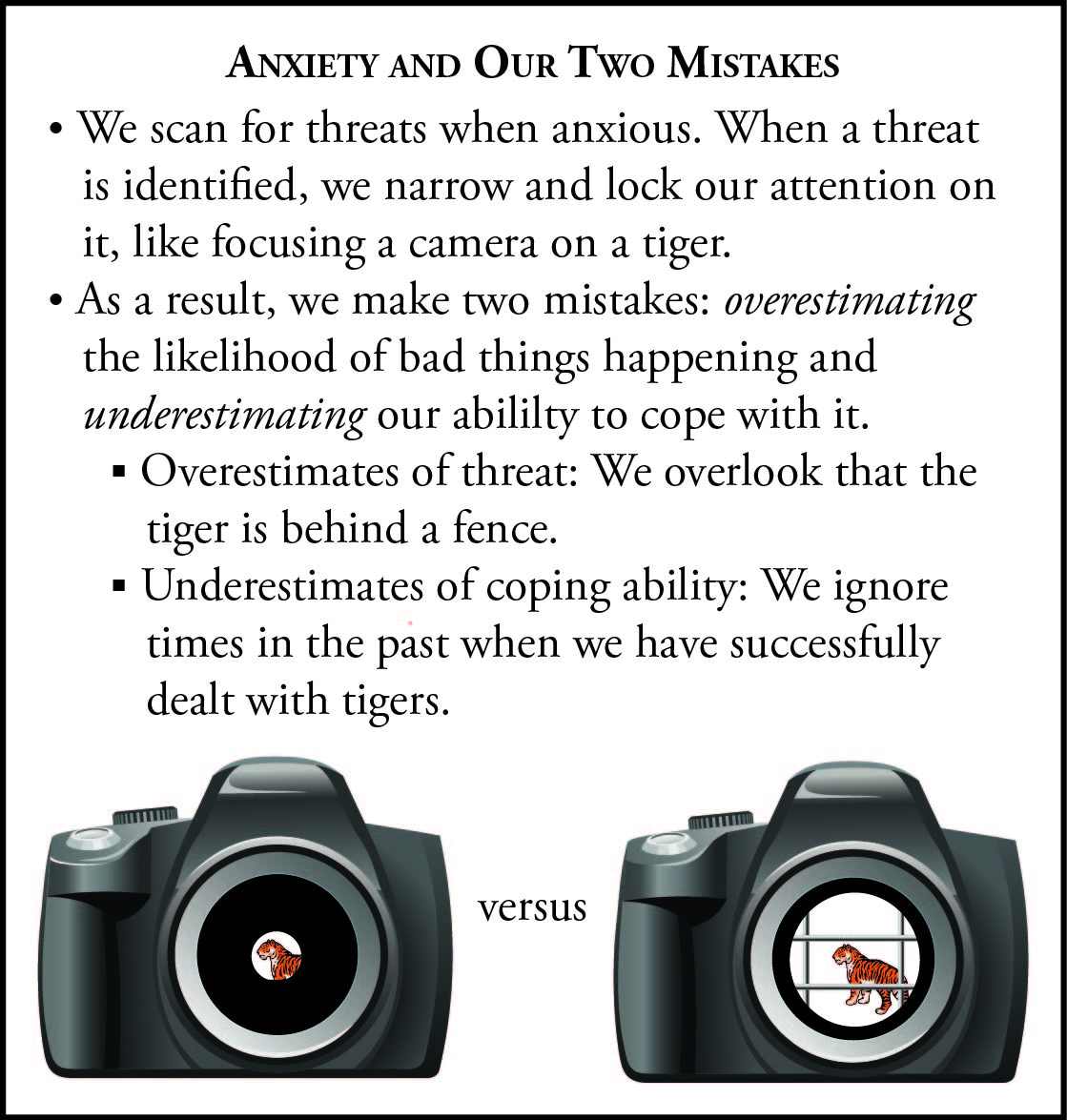Anxiety and Our Two Mistakes
Imagine arriving at work one morning and a coworker shares a rumor: layoffs may be coming. Even though this information was received from a single source, we decide that it is valid. Layoffs could indeed occur in the next few weeks. Yet we don’t just assume they could occur. We jump to the conclusion they will occur.
Of course, many people work at our company, so it is unclear who will actually lose their jobs. But we remember receiving a look from our boss and suddenly have a hunch. Layoffs are bound to happen, and we are very likely to be among those laid off.
But at least we can find another job, right? Not so fast, our anxious brain reminds us. This is a catastrophe in the making. Layoffs will happen, we’ll lose our job, and not find other work. Who knows what happens next. Losing our house? Losing our family? Losing the very things that we value most?
The example above illustrates two thinking mistakes related to anxiety. Anxious people pay special attention to threatening information, and a pair of anxiety-fueling errors arise from this attentional bias:
- overestimating the likelihood of bad things happenings, and
- underestimating our ability to cope with them.
The drama plays out like this:
Dylan M. Kollman, PhD
dkollman@realanxietysolutions.com








Hello! Would you mind if I share your blog with my myspace group? There’s a lot of people that I think would really appreciate your content. Please let me know. Thanks